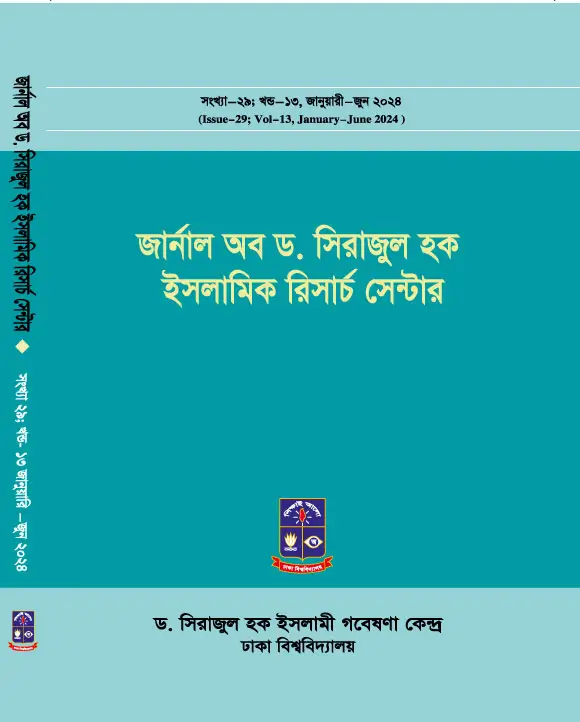
Issue-29, Volume-13, January-June 2024
ISSN : 1997 – 857X (Print)
Journal of Dr. Serajul Haque Centre for Islamic Research
The Unity and Solidarity among the Deobandi ‘Ulama’ in Bangladesh: Problems and Prospects
- Mohammad Amimul Ahsan
- Authors Email: mnurullah@dis.jnu.ac.bd
- Date of submission: 03 May 2024
Date of Acceptance: 26 June 2024
Journal of DSHCIR
Issue-29, Volume-13, January-June 2024
DOI:
ISSN : 1997 – 857X (Print)Page: 197-223
Abstract
The Deobandi school of thought has a significant presence in the religious landscape of Bangladesh, and the influence of its ‗Ulama‘ has far-reaching implications for the Muslim community and society at large. The Deobandi ‗Ulama‘ share common goals and objectives, but their methods and programs differ. Within this trend, scholars have varying opinions on their involvement with the government of Bangladesh. Some choose to engage in politics, while others remain uninvolved. This study examines the factors contributing to the need for greater unity among Deobandi scholars. It explores the complex dynamics at play, highlighting the obstacles impeding their unity and harmony. Additionally, it considers the possibilities for strengthening their unity and harmony, emphasizing the crucial role they can play in advancing Islam and benefiting the Muslim community. The concept of strong unity can pose various challenges for the Deobandi ‗Ulama‘ in Bangladesh, including theological rigidity, exclusivity, the potential for radicalization, a lack of adaptability to changing societal conditions, and limited engagement with broader societal issues. It is crucial to balance unity with openness to dialogue, adaptation to changing circumstances, and a commitment to the broader well-being of society. Thoughtful consideration of the dynamics of unity among the Deobandi ‗Ulama‘ is essential in the religious and social contexts of Bangladesh.
